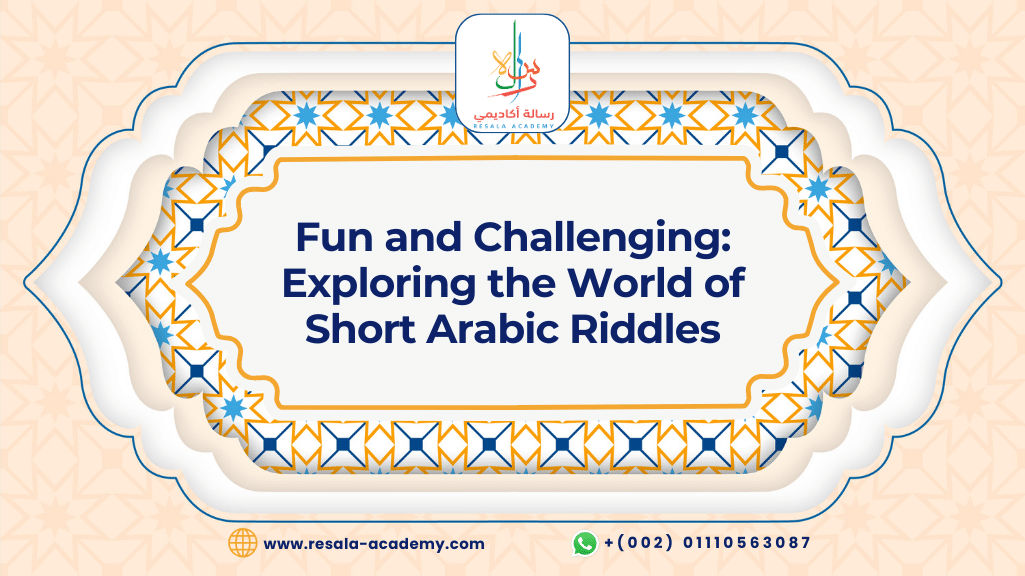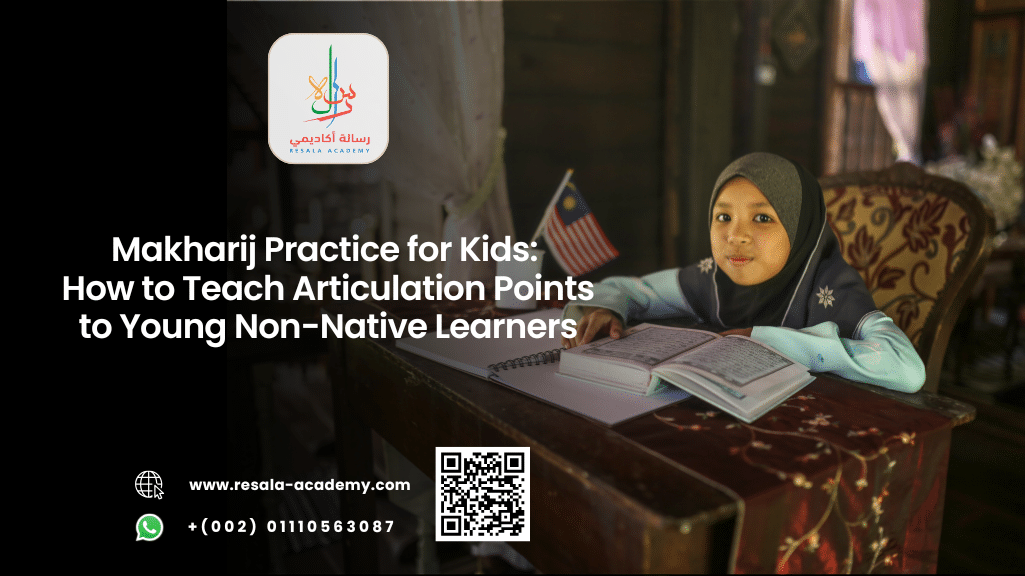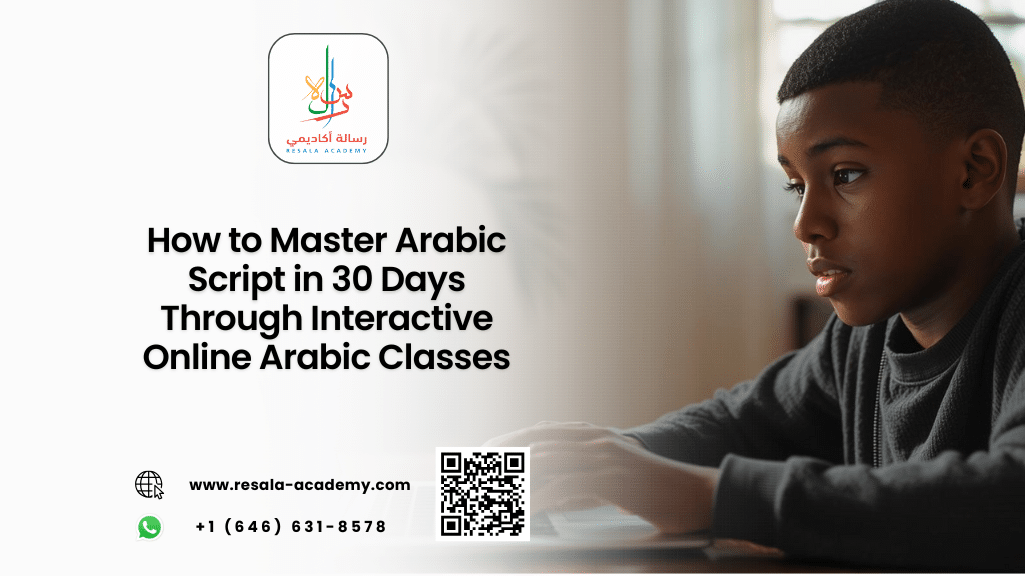Table of Contents
Fun and Challenging: Exploring the World of Short Arabic Riddles
Step into the world of mystery and intrigue, where words become enigmatic puzzles waiting to be unraveled. Welcome to the captivating realm of short Arabic riddles! These brain-teasers have been an integral part of Arabic culture for centuries, passing down wisdom, entertaining minds, and challenging even the most astute thinkers. From ancient times to modern-day gatherings, these linguistic conundrums continue to delight both young and old alike.
In this blog post, we will embark on a journey deep into the history and cultural significance of Arabic riddles. We’ll explore different types of short Arabic riddles and provide you with some popular examples that will leave you scratching your head in wonderment. But fear not! We’ll also share strategies and tips on cracking these perplexing codes so that you can become a master riddle solver yourself!
So why wait? Let’s dive into this marvelous world where wit meets wordplay, as we unravel the secrets behind short Arabic riddles!
History and Cultural Significance of Riddles in Arabic Culture
Riddles have long been an integral part of Arabic culture, tracing their roots back to ancient times. These brain-teasers hold a significant place in the hearts and minds of people across the Arab world, not only for their entertainment value but also for their cultural significance.
Arabic riddles have served as a means of passing down traditions, stories, and wisdom from one generation to another. They were used by poets, scholars, and ordinary individuals alike to engage in intellectual discourse and sharpen their critical thinking skills. Riddles provided a platform for creative expression while challenging listeners to delve deeper into the complexities of language and logic.
The rich history of Arabic riddles is intertwined with various aspects of Arab culture such as poetry, storytelling, folklore, and even religious teachings. Many renowned Arab poets incorporated riddles into their works to add intrigue and depth to their verses. The artistry of crafting these enigmatic puzzles reflects the linguistic prowess that has always been highly valued in Arabic society.
These short yet captivating riddles reflect the wit, cleverness, and humor inherent in Arabic culture. They often draw inspiration from nature or everyday life situations but portray them through metaphorical language or playful wordplay. This unique blend of creativity and intellect makes solving Arabic riddles both fun-filled challenges and opportunities for personal growth.
So next time you come across an intriguing question that begins with “What am I?” or “I have no eyes but can see everything,” embrace it as more than just a mental exercise – it’s a chance to connect with centuries-old traditions embedded within the Arabian heritage. Engaging with these timeless brain-teasers allows us to appreciate the beauty of language while fostering cultural understanding across borders.
Types of Short Arabic Riddles
1. Phonetic Puzzles: These riddles play with the sounds and pronunciation of words, challenging your ability to decipher hidden meanings or puns.
2. Wordplay Riddles: In this category, riddles rely on clever wordplay, such as homonyms or synonyms, to create a puzzle that requires you to think outside the box.
3. Math-based Enigmas: Arabic riddles often incorporate mathematical concepts like logic puzzles or numerical patterns, testing your problem-solving skills.
4. Visual Conundrums: Using images or visual cues, these riddles challenge you to interpret symbols and find hidden clues within intricate illustrations.
5. Cultural References: Some Arabic riddles are deeply rooted in cultural references like historical events, folklore tales, or famous sayings—making them not only fun but also educational!
6. Logic Riddles: These brain teasers require logical reasoning and deduction skills to unravel complex scenarios and find the correct solution.
7. Trick Questions: Prepare for some mind-bending moments! Trick questions intentionally mislead you with unexpected twists and turns—keeping you on your toes!
8. Rhyme-based Challenges: Delightful rhymes add an extra layer of complexity to these riddles where finding the answer becomes a poetic journey in itself.
Remember that each type offers its unique challenges and rewards—and mastering them all will make you a true connoisseur of short Arabic riddle solving! So get ready for some mental gymnastics as we dive into this captivating world!
Examples of Popular Arabic Riddles
1. “What has roots as nobody sees, Is taller than trees, Up, up it goes, And yet never grows?”
The answer to this riddle is a mountain! It’s intriguing how something can be so grand and immovable while still maintaining its mystery.
2. “I speak without a mouth and hear without ears. I have nobody but I come alive with the wind.”
Can you guess what this riddle is referring to? It’s an echo! This clever play on words shows just how powerful sound can be.
3. “I am taken from a mine and shut up in a wooden case from which I am never released, yet I am used by almost every person.”
Any guesses? It’s pencil lead! A simple object that plays such an essential role in our daily lives.
4. “It cannot be seen or felt, it lies behind stars and under hills.”
The answer might surprise you – darkness! This riddle reminds us that even the absence of light holds its kind of presence.
Arabic culture boasts many more captivating riddles like these that challenge our thinking abilities while giving us glimpses into their rich heritage. Keep exploring the world of Arabic riddles for endless fun and mental stimulation!
The Art of Solving a Riddle: Strategies and Tips
Solving a riddle is like embarking on an exhilarating mental adventure. It requires sharp thinking, clever deductions, and a dash of creativity. Whether you’re new to riddles or consider yourself a seasoned solver, here are some strategies and tips to help you unlock the secrets hidden within these intriguing puzzles!
Take your time! Read the riddle carefully and analyze each word. Pay attention to any clues or hints embedded in the language used. Sometimes, it’s all about finding that one keyword that unlocks the entire puzzle
Next, think outside the box! Don’t be confined by traditional interpretations or assumptions. Riddles often require you to approach problems from different angles and consider unconventional solutions.
Another useful strategy is breaking down the riddle into smaller parts. Identify any patterns or similarities between words or phrases. This can help you uncover hidden connections and guide you toward solving the overall puzzle.
Don’t hesitate to seek inspiration from other sources such as literature, mythology, or even everyday objects around you. Drawing upon diverse knowledge can provide unexpected insights that lead you closer to cracking the riddle’s code.
Remember: solving riddles is not just about finding answers; it’s about embracing curiosity and enjoyably challenging your intellect! So grab a pen and paper (or gather friends for some group fun) – let your mind wander through this fascinating world of short Arabic riddles!
Fun Ways to Incorporate Arabic Riddles into Daily Life
If you’re looking for a fresh way to spice up your daily routine, why not incorporate Arabic riddles into your life? These brain teasers are not only fun and challenging but also offer a unique opportunity to immerse yourself in the rich culture of the Arab world. Here are some creative ways you can bring Arabic riddles into your everyday activities.
1. Start your day with a riddle: Instead of scrolling through social media or checking emails first thing in the morning, kickstart your brain by solving an Arabic riddle. Challenge yourself to solve it before getting out of bed, and feel that sense of accomplishment as you begin your day.
2. Riddle-themed dinner parties: Gather friends or family for a themed dinner party where everyone brings their favorite Arabic riddles. Enjoy delicious food while testing each other’s wit and knowledge. This interactive experience is sure to spark lively conversations and create lasting memories.
3. Riddles on sticky notes: Add a touch of mystery to mundane tasks by placing small sticky notes with Arabic riddles around your home or office space. As you go about your day, ponder these puzzling questions during brief moments of downtime.
4. Riddle-inspired game nights: Organize game nights with friends centered around solving Arabic riddles together. Whether it’s charades with clues hidden within the riddles or creating scavenger hunts based on solving them, this will surely be an entertaining night filled with laughter and friendly competition.
By incorporating Arabic riddles into our daily lives, we can elevate our thinking skills while having fun at the same time! So why not embark on this exciting journey today?
Benefits of Engaging in Riddle-solving Activities
Engaging in riddle-solving activities is not just a fun pastime, but it also comes with a range of benefits for individuals of all ages. First and foremost, solving riddles helps to enhance cognitive abilities such as critical thinking and problem-solving skills. By deciphering the clues and finding the hidden meaning, you exercise your brain muscles and improve your ability to analyze information.
Furthermore, riddle-solving promotes creativity by encouraging you to think outside the box. As you try to unravel the enigma behind each riddle, you are forced to use unconventional approaches and consider alternative perspectives. This boosts your creative thinking skills and fosters innovative thoughts.
In addition to mental stimulation, engaging in riddles can be an entertaining way to bond with family and friends. Solving riddles together creates an atmosphere of collaboration and teamwork while providing opportunities for laughter and friendly competition.
Participating in riddle-solving activities can also serve as a stress reliever. Focusing on deciphering clues distracts your mind from everyday worries or anxieties, allowing you to relax and enjoy the moment.
So next time you come across a captivating Arabic riddle, don’t hesitate! Embrace its challenges wholeheartedly because along with entertainment comes an array of cognitive benefits that will sharpen your mind in delightful ways!
Resala Academy Offers Online Arabic Classes
Are you ready to take your Arabic language skills to the next level? Look no further than Resala Academy’s online Arabic classes! Whether you’re a beginner or already have some knowledge of Arabic, our courses are designed to cater to all proficiency levels. With experienced instructors and a flexible schedule, learning Arabic has never been easier or more convenient
At Resala Academy, we understand that everyone has different learning styles and goals. That’s why our online classes are personalized to meet your specific needs. Our instructors will work closely with you to ensure that you receive individualized attention and guidance throughout your language-learning journey. From mastering basic vocabulary and grammar to improving conversational skills, we’ve got it all covered.
One of the advantages of taking online classes is the flexibility it offers. You can choose when and where you want to study, making it ideal for those with busy schedules or other commitments. Plus, our interactive virtual classrooms provide an immersive learning experience that replicates a traditional classroom setting.
Joining Resala Academy’s online Arabic classes not only allows you to develop important language skills but also opens doors to understanding Arab culture on a deeper level. Immerse yourself in the rich traditions and heritage associated with the Arabic language as you learn from native-speaking instructors who bring their cultural expertise into every lesson.
With Resala Academy’s online Arabic classes, there are no boundaries when it comes to expanding your linguistic horizons. Take this opportunity today and embark on an exciting journey towards fluency in one of the world’s most captivating languages!
FAQs
1. Are Arabic riddles difficult to solve?
Short Arabic riddles can range from easy to challenging, depending on the complexity of the wordplay and cultural references involved. However, with practice and familiarity, you’ll find yourself becoming more adept at deciphering these brain teasers.
2. How can I improve my skills in solving Arabic riddles?
Engaging in regular riddle-solving activities is key to honing your skills. You can join online forums or communities where enthusiasts share and discuss riddles. Additionally, reading books or articles about Arab culture and language will help deepen your understanding of the context behind these puzzles.
3. Can children also enjoy solving Arabic riddles?
Absolutely! Introducing short Arabic riddles to children not only promotes critical thinking but also exposes them to a different language and culture. Start with easier ones tailored for their age group and gradually increase the difficulty level as they progress.
4. Where can I find more examples of short Arabic riddles?
There are numerous websites dedicated to sharing a wide variety of short Arabic riddles that cater to all levels of expertise. You can also explore books on Arab folklore or visit local libraries specializing in languages or world cultures for additional resources.
Conclusion
So, there you have it! The world of short Arabic riddles is a fascinating and captivating one. These clever word puzzles have been enjoyed for centuries, showcasing the rich cultural heritage of the Arab world. From their historical significance to the joy they bring in solving them, Arabic riddles offer a unique form of mental stimulation and entertainment.
By engaging in riddle-solving activities, you not only sharpen your critical thinking skills but also deepen your understanding of the Arabic language and culture. Whether you’re looking to challenge yourself or have some fun with friends and family, these brain teasers are sure to provide endless amusement.
If you’re interested in exploring more about the Arabic language or want to enhance your knowledge through online classes, Resala Academy offers comprehensive courses designed for learners of all levels. Their experienced instructors will guide you through various aspects of the language while incorporating interactive activities like solving riddles into their teaching approach.
So what are you waiting for? Dive into the intriguing realm of short Arabic riddles today and unlock a whole new level of linguistic enjoyment! Happy puzzling!




